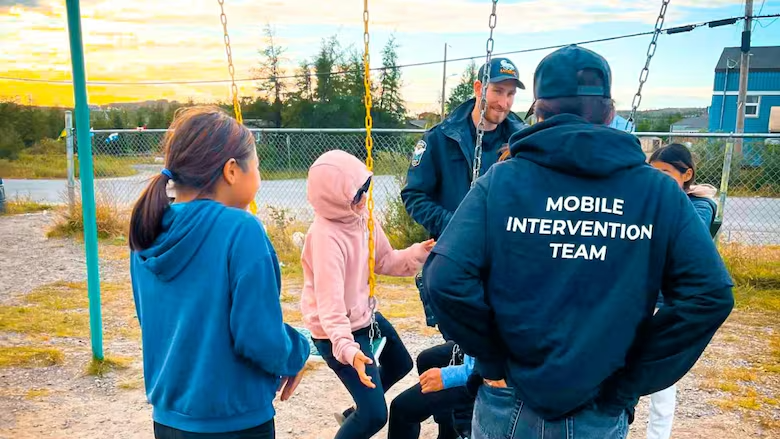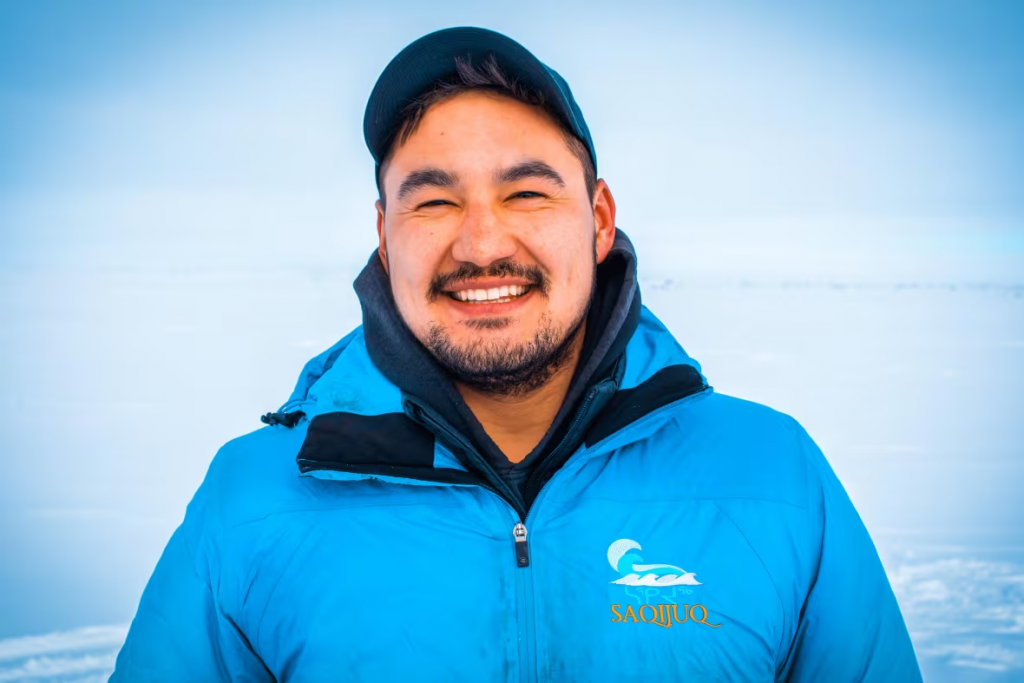Program pairing police and social workers expands to Kuujjuaq, Que.

Saqijuq says the aim of the partnership is to avoid calls turning into arrests
Kuujjuaq now has a new way of policing — and it’s focused on social support rather than criminalization.
Saqijuq introduced mobile intervention teams (MIT) to the Nunavik village in northern Quebec last month. They pair social workers with police officers as they patrol the streets, six evenings a week.
They respond to distress calls like those related to mental health, conjugal violence or children and youth at risk.
Saqijuq’s executive director, Lukasi Whiteley-Tukkiapik, says some calls to police don’t always need to end in an arrest. Sometimes, all it takes is a listening ear to defuse a situation.
“The police officers are in such a rush at times where they end up just taking them straight to the police station instead. When people find out that they’re going to be held at the police station … they tend to resist, and that would cause unnecessary charges,” he said.
“But now with MIT, it’s the social worker that we have in place that’s going to take the lead in these interventions. And the police officer is there to collaborate with the social worker, to collaborate with these clients.”

Jean-Francois Morin, the deputy chief of operations for the Nunavik Police Service, acknowledged that the sight of a police officer can be triggering for some people — especially given the traumatic history of police in Inuit communities — and having the expertise of a social worker helps.
On top of that, he said, MIT can make things more efficient for everybody involved.
Now that social workers are joining police on patrols, they can provide assistance earlier without having to go to the after-hours social worker on call. Meanwhile for the police, Morin said, they can focus their efforts on their investigations.
“The victim is receiving proper services from somebody that’s qualified. And the police officers, it gives them time to do what they have to do,” he said.
Success in Puvirnituq
Saqijuq’s MIT model first started in Puvirnituq in 2019. According to the non-profit organization, 97 per cent of the interventions the team has made there have avoided cases going to court.
The organization said last year alone, the MIT in Puvirnituq did nearly 600 interventions in the village of roughly 2,100 people.
People can reach MIT in their community by calling local police. Maude-Émilie Drolet, the MIT program development director at Saqijuq, said she often hears people calling police and specifically asking for the MIT.
“It’s coming with a police officer there to ensure safety, but it’s also coming with someone that’s been trained in crisis responses, and their job is to find solutions within the community … they take the time to really assess the whole situation to see if referrals are needed and we’re trying really to involve everyone,” she said.

Currently, there are no Inuit or Inuktitut-speaking staff on the MIT units. Drolet said that’s something they’re actively trying to address. To overcome language barriers, she said social workers lean on others in the community for help.
“That’s when we try to find community, family members, friends to come in and join and help out … there’s some services from the health centres that can support as well, if needed,” she said.
Both Nunavik police and Saqijuq said they would like to have MIT in all of the region’s 14 villages.
But Whiteley-Tukkiapik said funding and securing housing for rotational workers are the main challenges for them to expand.
He said they rely on funding from the regional, provincial and territorial governments, but he’s optimistic.
“We do feel like we have a strong backing from the community, from the Nunavik Police Service. There are a lot of other organizations that want this to move forward and they see the need for this program,” he said.
Related stories from around the North:
Canada: Inuvik hospital workers decry loss of weekend mental health services, emails show, CBC News
Finland: Climate change worries Finland’s young reindeer herders, Yle News
United States: Craft space aims to teach Alaska Indigenous women skills — and help beat addiction, Alaska Public Media



